
NARRATIVES
SLIDING DOWN THE HILL
North India
The familiar whistle of the locomotive announces its slow approach to the impatient crowd waiting on the platform. The Khambli Ghat station master bustles around. Travellers walk in different directions to get into the right car, to the right seat. Despite the infinity of classes existing in the Indian railway system, they stride along with determination, visibly knowing where to go, not even taking a quick look at the yellow capital letters solemnly inscribed on a burgundy background. But half the people gathered on the platform do not take the few steps separating them from the mysterious interior of the noisy machine.
They stare at her, come closer once they have picked a strategic spot, and then start shouting: ‘Chai! Chai!’ In their right hand, the boiling teapot moves from side to side. In the left, they hold a dozen cups to serve potential clients. Most of these itinerant sellers, who hastily go along the train and shout loudly to lure the traveller, are very young, probably coming to the station right after the morning’s government school, a place where they can truly be children. Men get off and come to meet them, take a break, and drink a cup of masala tea. Often, they light a cigarette, put their left hand on their hip, and smoke with pride. Responsible fathers rush to fill empty bottles with drinking water from the tap, while mothers wait with the youngest inside and curiously gaze through the bars of the windows.


The driver blows the whistle again, announcing this time the slow departure of the crowded locomotive. People have completely vanished from the platform. In the wagon, the excitement is palpable as travellers move around to appropriate their temporary home, only rigid parallel bars separate the outer landscape from the atmosphere inside. Boys sit at the door left open, their legs flying with any swerve, vulnerable to the machine’s rhythm. They value these few complete openings as the best spots to catch a view free of obstacles on the upcoming journey. On top of the train, their fearless elder brothers have taken place and enjoy every second of the unique sight around them. An old man with orange turban and tunic is seated between compartments, as if he has not decided to commit yet, or simply because he plans to leave the train at the next station and preferred to spare the steps. After a few minutes, people pass around bottles of water and spicy peanuts, lentils and all sorts of tasteful seeds, the local snacks. Families are on their way to the Ramdevra temple, they speak about this long journey. As a man walks in and shouts a motto familiar to the assembly of pilgrims, they instinctively respond in a shared sentence. The train moves further away from the station, it goes deeper into the forest and progressively reveals the dazzling beauty of the Aravalli range.
Trees flourish on all sides of the mountains. Only the noise of the machine on the tracks disturbs the peace of nature. A river flows rapidly but slows down as waterfalls approach. The locomotive similarly pauses in its journey before sharp descents in dark caves. Passengers take advantage of the stop to throw banana skins and various leftovers at agitated monkeys, bouncing inhabitants of the forest, who fight among themselves for a bigger piece of the cake. Each and every one of the travellers marvel at the magnificence of nature in its own territory. Beauty soon overwhelms them and people fall silent, to better gaze outside and willingly dive into a collective dream.



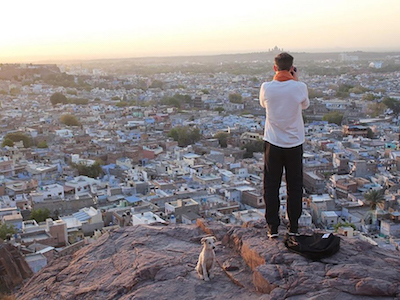
Of Virginia Woolf, Cereal and Kamalan
Always interested in exploring the fluid relationship between art, literature and travel, we were instantly drawn to the aesthetics and...
Narrative • North India
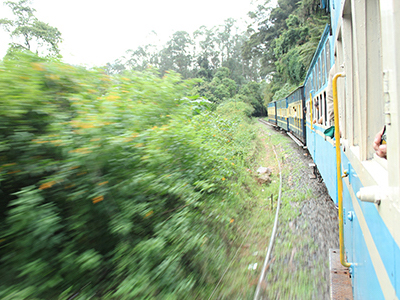
The Toy Train in the Mountains
We took the toy train in Coonoor early morning. We were quite grumpy, wondering why we had let our travel...
Narrative • Tamil Nadu
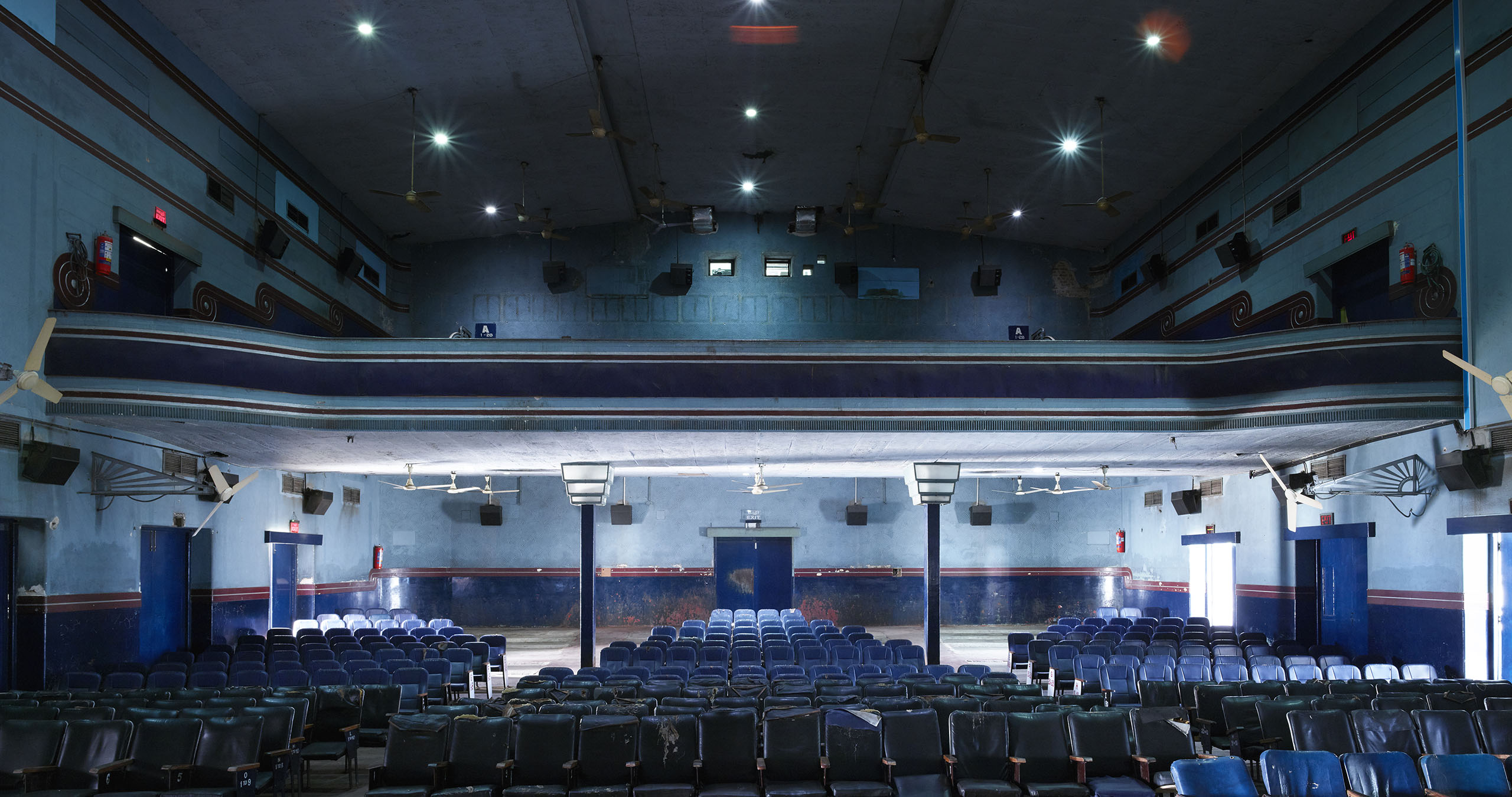
Cathedrals of Ecstasy
Retrace our steps with Hole & Corner as we explored the derelict performance spaces of Chennai and Madurai in the south...
Behind-The-Scenes • South India

Aromas that the Ships brought
This journey trails the coastlines of the Arabian Sea, to discover the rich flavours and fragrances that have arrived and thrived here...
Bespoke Journey • West India
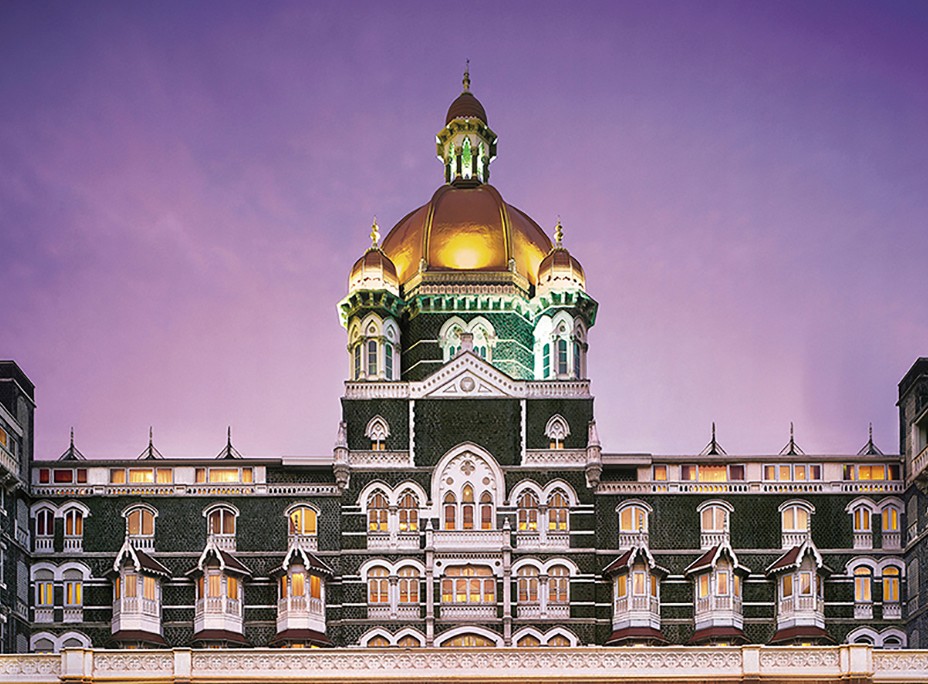
Taj Mahal Palace
Under the glimmering lights of the bustling city of Mumbai lies a timeless structure. As the streets...
Hotel Guide • West India
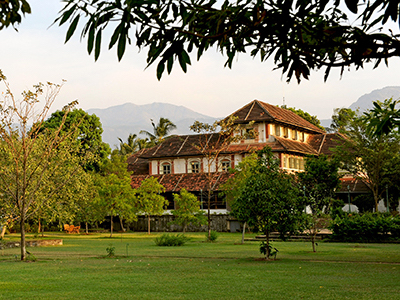
Peace of Mind
I seek out the Kalari Kovilakom, a palace in which the austerity of an ashram is transformed into the comfortable...

